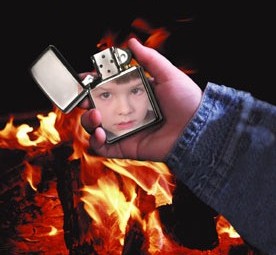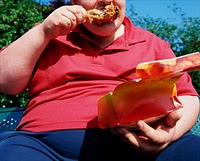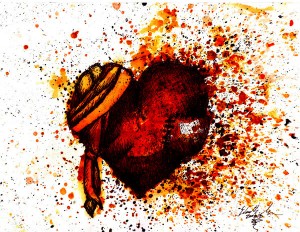A couple days ago when I wrote about that OCD screening test I found, something from childhood came back to me. I’ve never forgotten about my fascination with matches and fire. But one of the questions made me realize that the childhood fascination may have been one of my earliest OCD habits.
Mood music:
[spotify:track:0ydzdWYWIFlGBurhjEXwit]
The question was if I ever had an “overconcern with keeping objects (clothing, groceries, tools) in perfect order or arranged exactly.” Here was my answer:
As a kid I always had to have my Star Wars action figures arranged just right. I guess I got over that when my obsession turned to fire and I decided lighting the figures on fire was more important than having them arranged just right.
Funny thing about Star Wars. It always seemed to trigger my impulse to start a fire. One morning when I was in fourth grade, I was up at 5 a.m. playing with a model I had of the Millennium Falcon. It was one of those models assembled with highly flammable glue. I wasn’t thinking of that when I decided it would be cool to burn some battle scars into my ship.
I lit it on fire, right at the dining room table. Once it was blazing and black smoke from the burning plastic started wafting up to the chandelier, I decided it was time to put it out. I dumped a glass of water on it. Nothing. Imagine that? Burning plastic needs more than a glass of water to be snuffed out.
I panicked and threw the ship onto the cement floor of our front patio. Then I ran into my father’s room and told him I had opened the door to see something burning. He opened the front door and pitch-black soot came pouring into the house, staining everything in its path.
He grabbed a box of baking soda and dumped it on the burning ship, which managed to put it out.
Surprisingly, he didn’t beat the shit out of me. He did punish me, though. Looking back, the image of him in his underwear on the front porch cussing up a storm ALMOST made the punishment worth it.
When I hit puberty, I turned my attention to the rest of the Star Wars toys. I remember smiling as I put the match to Han Solo and watching his face bubble and melt. Most of the other Star Wars toys suffered a similar fate.
I also had an obsession with these big bonfires they used to have in the Point of Pines every July 3rd (I think they still do). The older kids would throw everything they could find into a pile: Old bed frames, pallets, chairs, logs. On the night of one such bonfire, a friend’s brother pulled out a large box of fireworks and brought it onto the beach across from his house.
We started by lighting them off one at a time. Then, somewhere in there, I decided the results weren’t spectacular enough. I picked up the still half-full box and tossed it into a barrel fire we had going. Fireworks exploded and shot out of the barrel in every direction.
One of my friends, a kid named Corey, half-smiled as he yelled, “Billy…Billy…You’re crazy Billy!” I was, of course. I just didn’t know it at the time. Some of the fireworks lit the dune grass on fire, and for the first time I worried that my fascination might someday land me in jail.
Looking back, I was using fire to feed all the aggression I was feeling over everything that had gone on in my life up to that point. It was sort of a precursor to the binge eating addiction. At least when I turned to that, I was only hurting myself. When I think back at the damage I could have cost, to people and objects, I cringe.
I was a miserable little bastard in junior high, around the time Def Leppard’s “Pyromania” album came out. That album was great, but it probably wasn’t the best thing for a teenage pyromaniac to be listening to.
[youtube=http://www.youtube.com/watch?v=tIlgciJ8DTs&fs=1&hl=en_US]
Fortunately, I grew out of this obsession as I got older. I moved on to other insidious obsessions, but like I said, those were more damaging to me than anyone else.
I still love the look of a roaring fire and the sound of a match striking sandpaper. But it doesn’t go further than that.
Over the years, as I worked on my struggles with OCD and addiction, I found better things to fill that hole in my soul with. The right treatment for OCD. Abstinence from the addictions that almost destroyed me. A beautiful wife and children. Above all, God.
Fire? It just can’t hold a candle to those other things.
Not anymore.


 It was nothing of the sort.
It was nothing of the sort.


